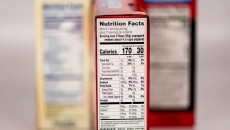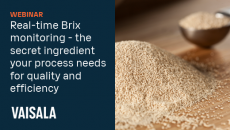US food and beverage firms convert to rPET packaging
Naked Juice has said the decision to use 100 per cent post-consumer recycled polyethylene terephthalate (PCR PET) plastic in its Naked reNEWable bottle will make it the first nationally distributed brand to do so. Earthbound Farm’s move to manufacture its entire plastic clamshell packing to rPET is also an industry first in the fresh-cut salad segment, said the firm.
Virgin PET is made primarily from natural gas feedstock, whereas rPET is produced from previously used plastic products that would otherwise end up in landfill. According the Environmental Protection Agency, there were nearly six billion pounds of PET packaging waste generated in 2007, with only 23 per cent recycled into new products. This left over 4.5 billion pounds of PET to go to landfill sites.
2010 target date
California-based juice producer Naked said it expects to have transferred its entire product line to rPET by the end of 2010. The process will begin this month by converting manufacture of all its 32 ounce bottles – which will be labelled as 100 per cent recyclable. The company said that, in addition, all its bottles would continue to be recyclable.
Naked said the move was part of its green initiative to cut virgin plastic consumption by 8.1m pounds (3.6m kg) a year – the equivalent of 57,000 barrels of oil or taking 3,460 cars off of the road, said the firm. The initial 32-ounce bottle transition alone would reduce virgin plastic consumption by one million pounds per year, a company spokesman told FoodProductionDaily.com
Closing the loop
“The transition to 100 percent post-consumer recycled bottles is a major milestone that we have worked hard to achieve. It’s important for the earth, and that’s important to our consumers,” said Mikel Durham, general manager of Naked Juice.
“Closing the loop on packaging is fundamental to a vision for more sustainable packaging,” said Anne Johnson, director of the Sustainable Packaging Coalition at GreenBlue. “Utilising 100 percent recycled material in a juice bottle that can be collected and recycled yet again is a step in making this vision a reality. This innovation sends a signal to the market that there are end markets for materials if we recycle more.”
Johnson also hailed Earthbound Farm’s scheme as “a perfect example of how to get the ball rolling in the right direction”.
Salad pack savings
The company, which said it is the largest grower of organic food in the US, announced that all its plastic clam-shell packaging was now being manufactured from rPET.
Earthbound Farm said that based on its annual usage of rigid PET plastic in 2008, the company’s conversion to 100 per cent rPET for clamshell packaging will conserve 424,000 million BTUs and 68,307 gallons of water, as well as eliminate 16,191 tons of carbon dioxide and divert 1.3 million pounds of solid waste from landfills.
Earthbound Farm manager Chad Smith said: “We hope that other companies will see the value in adopting packaging solutions with PCR content and that consumers will make the decision to seek out PCR packaging when shopping. Working in tandem these steps will create the manufacturing demand needed for post consumer recycled materials.”












